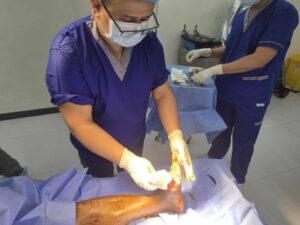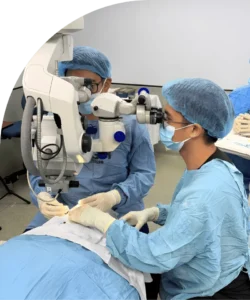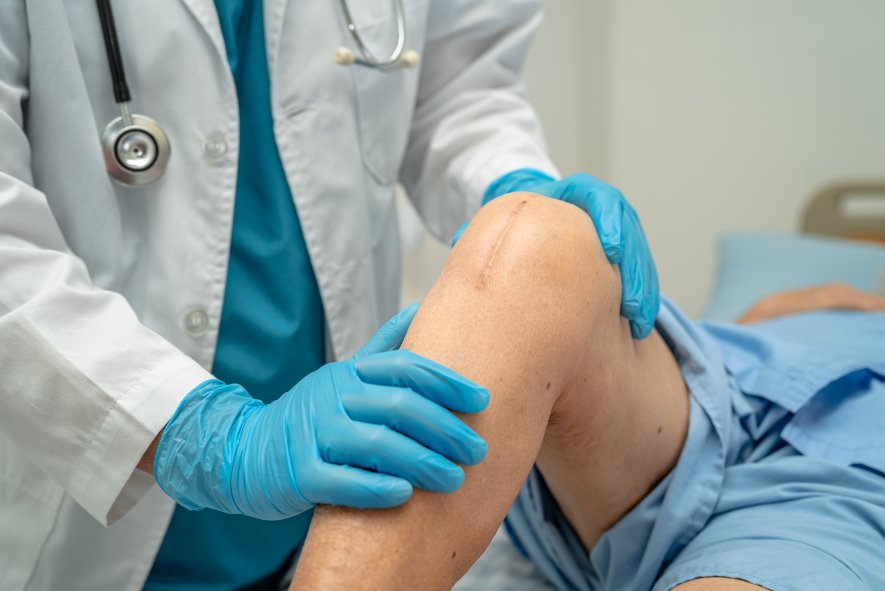Understanding the Role of a Knee Surgery Doctor
A knee surgery doctor plays a vital role in diagnosing, treating, and managing knee conditions that require surgical intervention. Unlike general practitioners who focus on broad medical care, these specialists dedicate years of training specifically to the musculoskeletal system, with a concentration on the knee. Their expertise allows them to recommend treatments ranging from minimally invasive procedures to complex joint replacements. Many knee surgery doctors are orthopedic surgeons with advanced fellowship training in knee-related surgeries. This specialized knowledge ensures they stay updated on the latest techniques, devices, and rehabilitation strategies. For patients experiencing severe pain, limited mobility, or injuries that resist traditional care, consulting a dedicated knee surgery doctor offers the best chance for long-term recovery and improved quality of life. By working with such a specialist, patients receive tailored care that addresses their unique lifestyle and health needs.
Common Reasons People Seek a Knee Surgery Doctor
There are several conditions that lead patients to seek the expertise of a knee surgery doctor. One of the most common is osteoarthritis, which causes chronic pain and stiffness that limits everyday activities. Sports-related injuries are another major reason, particularly tears in the ACL or meniscus that cannot heal on their own. Accidents resulting in fractures, dislocations, or trauma to the knee often require surgical correction to restore proper alignment and stability. Some patients are born with congenital deformities that worsen over time, creating the need for corrective surgery. Additionally, when non-surgical methods such as physical therapy, medication, and lifestyle changes fail to provide relief, surgery becomes a practical solution. Consulting a knee surgery doctor ensures that the underlying condition is accurately diagnosed and treated with the most effective approach. These scenarios highlight why specialized intervention is often the best option to restore mobility and ease discomfort.
Types of Knee Surgeries Performed by Specialists
A knee surgery doctor is trained to perform a wide range of procedures depending on the severity and type of condition. Arthroscopic surgery is one of the most common techniques, allowing doctors to repair minor cartilage or ligament damage through tiny incisions. For patients with more extensive joint damage, partial or total knee replacement may be necessary, where damaged surfaces are replaced with artificial implants. ACL reconstruction is frequently performed for athletes and active individuals who sustain ligament injuries, helping restore stability and function. Cartilage repair and restoration procedures are designed to promote healing in cases of early joint degeneration. Revision surgery is also performed by knee surgery doctors when a previous implant fails or wears out over time. Each of these procedures requires not only technical skill but also a careful assessment of the patient’s health and activity level. With advances in technology, many surgeries today are less invasive, offering faster recovery and reduced risks.
Qualities to Look for in a Knee Surgery Doctor
When searching for the right knee surgery doctor, several qualities should be considered to ensure the best outcome. Board certification is essential, as it confirms that the doctor has met rigorous professional standards and ongoing education requirements. Fellowship training in knee or sports medicine indicates an even deeper level of specialization. Experience also plays a crucial role, since doctors who have performed hundreds or thousands of knee procedures are more likely to anticipate complications and optimize surgical results. Patients should also look for doctors who embrace advanced technologies, such as robotic-assisted surgery, which enhances precision during procedures. Another important factor is communication style, as a good doctor should explain treatment options clearly and involve the patient in decision-making. Hospital or clinic affiliations can also indicate the level of resources and support available during surgery and recovery. By weighing these qualities, patients can make a confident and informed choice about their care provider.
Preparing for a Consultation with a Knee Surgery Doctor
Meeting with a knee surgery doctor for the first time requires preparation to make the most of the consultation. Patients should gather relevant medical records, imaging results such as X-rays or MRIs, and a detailed history of symptoms. Bringing this information helps the doctor assess the problem more efficiently and recommend suitable treatments. It is also wise to prepare a list of questions, including those about surgical options, expected outcomes, and recovery timelines. Patients should openly discuss their pain levels, daily challenges, and activity goals, as these factors influence the recommended approach. Understanding potential risks and complications is also important, as it allows patients to set realistic expectations. Being honest about lifestyle habits, such as exercise routines and diet, helps the doctor create a personalized care plan. With proper preparation, a consultation becomes a productive conversation that builds trust and leads to a clear treatment path.
The Surgery Process Explained by a Knee Surgery Doctor
A knee surgery doctor carefully guides patients through each step of the surgical process. The journey typically begins with pre-operative assessments, including blood tests, physical examinations, and imaging studies to confirm the diagnosis. These evaluations help determine the patient’s overall health and readiness for surgery. On the day of the procedure, anesthesia is administered to ensure comfort and safety, whether through general anesthesia or regional blocks. The surgical techniques used vary depending on the procedure, from small incisions in arthroscopy to larger approaches in joint replacement. Most surgeries last between one to three hours, although complex reconstructions may take longer. Safety protocols, including sterile environments and infection prevention measures, are strictly followed to minimize risks. After surgery, patients are closely monitored in recovery before being moved to a hospital room or discharged the same day, depending on the procedure. Throughout this process, clear communication from the knee surgery doctor helps reduce anxiety and fosters patient confidence.
Recovery and Rehabilitation Under a Knee Surgery Doctor’s Care
Recovery from knee surgery requires dedication and guidance, and a knee surgery doctor plays a key role in ensuring progress. The initial stage often involves a short hospital stay or outpatient monitoring, where the focus is on pain control and regaining basic mobility. Physical therapy begins soon after surgery, with exercises designed to restore strength, flexibility, and balance. These programs are typically personalized, taking into account the patient’s age, condition, and goals. Regular check-ups with the knee surgery doctor track healing, adjust medications, and ensure the knee is recovering properly. Pain management techniques may include a combination of medications, ice therapy, and controlled activity. Patients are often given milestones, such as walking unaided or climbing stairs, to measure progress during recovery. Long-term adjustments, such as maintaining a healthy weight and avoiding high-impact sports, can protect the new joint and extend its lifespan. With consistent effort, patients often return to normal activities with improved mobility and reduced pain.
Why Choosing the Right Knee Surgery Doctor Matters
Selecting the right knee surgery doctor can make a significant difference in the outcome of treatment. Experienced doctors are more likely to deliver successful surgeries that improve mobility and reduce pain. They also help lower the chances of complications, such as infections or implant failures, through precise surgical techniques and strict protocols. A skilled doctor not only performs the procedure but also provides comprehensive care that extends into recovery and rehabilitation. Patients benefit from access to cutting-edge procedures and medical technologies that enhance results. Furthermore, choosing a doctor who understands patient needs ensures a more personalized approach to care. The right doctor can transform a difficult medical experience into a journey toward renewed independence and a better quality of life. For anyone facing knee surgery, this decision is one of the most important steps in achieving long-term health and well-being.
Frequently Asked Questions (FAQ)
How do I know if I need surgery or just therapy for my knee pain?
A knee surgery doctor will evaluate your symptoms, medical history, and imaging results to determine whether surgery or non-surgical options are best. In many cases, physical therapy, injections, or lifestyle changes are attempted first before recommending surgery.
What’s the difference between partial and total knee replacement?
Partial knee replacement involves replacing only the damaged section of the knee, while total knee replacement replaces the entire joint surface. A knee surgery doctor will suggest the best option based on the extent of damage and overall health.
How long does it take to fully recover from knee surgery?
Recovery times vary depending on the procedure, but most patients need three to six months to regain full strength and mobility. Some may take up to a year to achieve complete healing and return to high-impact activities.
Are minimally invasive procedures better than traditional surgery?
Minimally invasive techniques often result in smaller scars, less pain, and faster recovery. However, not all conditions can be treated this way, so a knee surgery doctor will recommend the most suitable approach for each patient.
How do I choose the best knee surgery doctor near me?
Look for board certification, specialization in knee procedures, years of experience, and positive patient feedback. It’s also helpful to choose a doctor affiliated with reputable hospitals or clinics that offer advanced surgical technologies.










